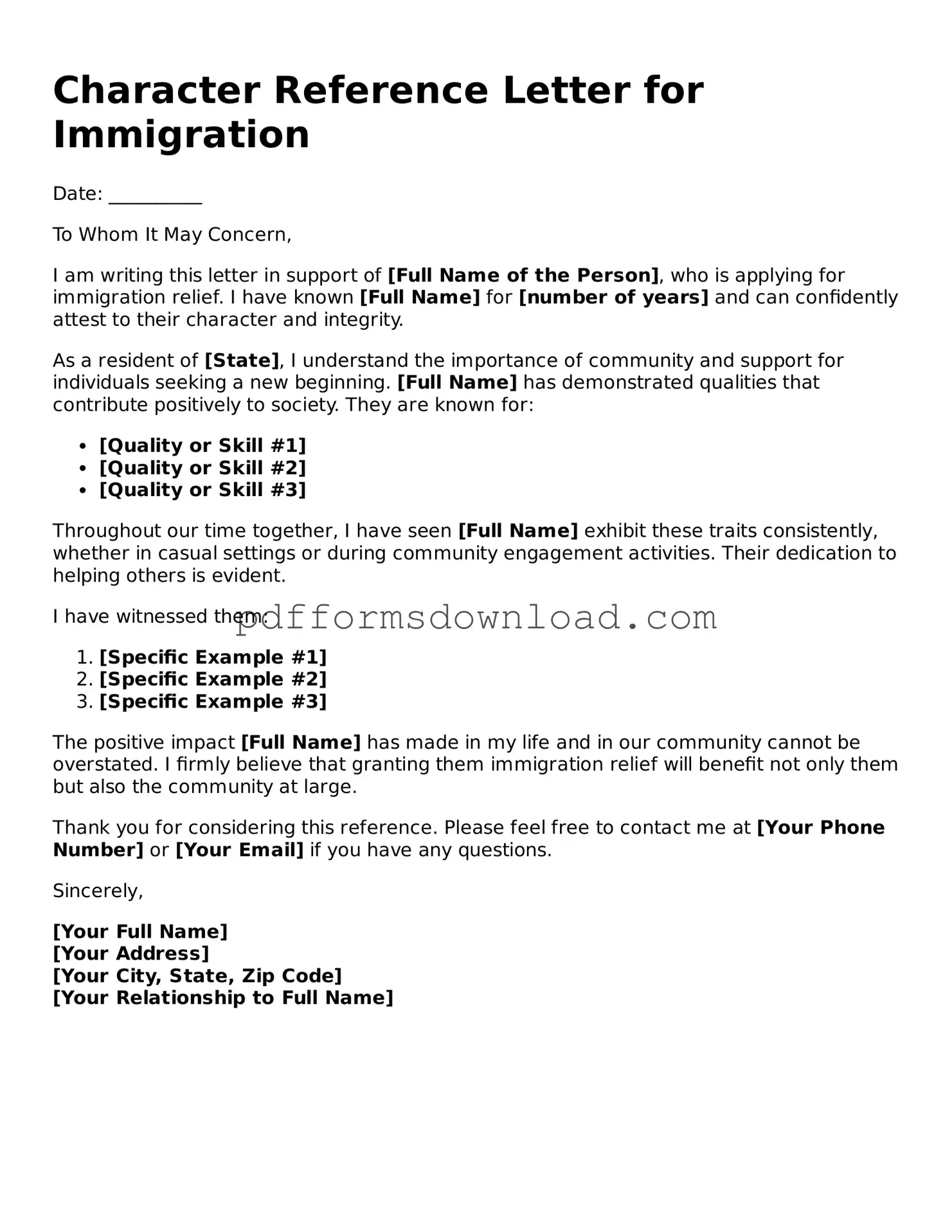Official Character Reference Letter for Immigration Document
The Character Reference Letter for Immigration is a document that supports an individual's application for immigration by providing insights into their character and contributions to the community. This letter is typically written by someone who knows the applicant well, such as a friend, employer, or community leader. By highlighting the applicant's positive traits and experiences, this letter can play a crucial role in the immigration process.
Ready to get started? Fill out the form by clicking the button below.
Make This Document Now

Official Character Reference Letter for Immigration Document
Make This Document Now

Make This Document Now
or
Free PDF File
Your form is almost ready
Complete your Character Reference Letter for Immigration online — edit, save, and download easily.